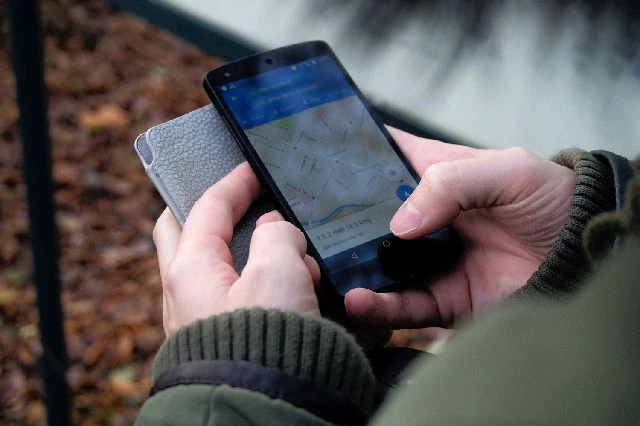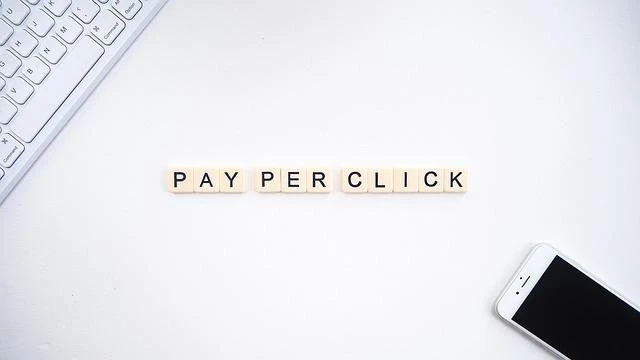Why Is My Website Not Showing On Google?
by Dan Cook
You don’t need to be a web expert these days to know just how important to your business it can be to rank on Google Search. Thousands of companies have based their entire business models around making a success of generating leads through Google Search and SEO in general, and today search engines remain as popular as ever when it comes to matching queries with the right service, product or company.
Which no doubt begs the question (and probably the reason you found this blog!) Just what does it take to appear in Google’s search results in 2022? And more importantly, how do you appear on the first page of Google?
Starting with Google Search guidelines
It might seem obvious, but the first place you want to look for guidance is Google itself on this. Google will tell you not to start with a search engine, Search Console or even any search results at all. It will tell you to start with your web pages.
Let’s start with the basics. Google likes websites that are:
Fast and easy to access across all devices
Serving high quality content that fulfils searcher intent
Secure
Locally optimised so search results can match people to local businesses
If your website isn’t meeting the above guidance just as a start, you’re very unlikely to rank in Google search.
Once you’re sure that your website can do the above, you can dive a bit deeper into some of the more technical aspects of optimising for search engines.
Using Google Search Console
Google Search Console is a critical tool for making sure you’re doing everything you can to optimise your keywords for Google Search, and if you’re not using Google Search Console you should be. Again start with the basics here, check through the sitemaps section to ensure you have an up to date version of your site map submitted and crawled correctly.
Check the site issues section to see if there are any reasons that your site isn’t being crawled properly and showing up on search engines exactly how you intended.

Ruling out any of these errors you can then move to seeing what you rank for and where you rank for it in other sections of Google Search Console, as well as your click through rate (CTR) and link profile. These can both be critical aspects of why you’re not ranking.
Keywords
We doubt anyone needs to be told this anymore, but keywords are a critical part of how to appear in search engine results. They’re fundamentally the terms that Google attempts to match any queries with as your keywords tell them what your page is about. You’ll want to be sure that the keywords you use on your web pages are as relevant to a particular search query used as possible, have a search volume that is worth optimising for, and also are achievable to rank for (you’re unlikely to outrank Amazon for example). Google Search Console again is an excellent way of weeding out keywords that just aren’t fulfilling those three things and replacing them with better researched terms that will enable you to rank in Google’s search results.

What goes hand in hand with optimising your web pages for these keywords is a high quality content strategy if you aren’t already doing it. Hubspot’s cluster strategy is an excellent way of supporting your already optimised web pages to rank for multiple terms relevant to your audience. The idea is that all of your carefully curated pages will generate more links, more engagement, more clickthrough which linked back to a “parent” page will generate the Google Search results you’re after.
This often specialised content researched through Google Search Console, Google Keyword Planner etc, gives you a much broader scope of things to optimise for as well. You can really optimise for long tail keywords (specific keywords with lower search volume per month), include far more optimised meta descriptions and meta tags via multiple pieces of content. You’re covering much more ground and simply being cleverer about covering searcher intent this way, as well as building up your website’s authority. It’s often one of the few ways to hit the first page of google for more competitive topics.
On page optimisation for Google Search
Ensuring your on page optimisation is correct is another big part of ensuring you rank in search engines, especially on the first page of Google. A lot of it is very simple but can be easily forgotten. Search engine optimisations such as:
Including relevant and multiple headings
That your topic is clear within the main title and the first paragraph
Including links to both your site and other high quality and authoritative pieces of content relevant to the reader
Ensuring that your blog post has relevant imagery that illustrates and adds to the topic.
Ensuring your blog post is well optimised to all devices, including properly sized and mobile friendly media.
Ensuring that your meta description is relevant, contains the keyword your want to optimise for and works and an enticing description of the blog post for those scrolling through search results for your CTR.
That your image meta tags contain your keyword while still explaining the contents of the image.
Tools such as Yoast SEO are a great checklist for checking on page optimisation for content, but shouldn’t be used as a cure all. Used in combination with other content tools and remembering that you’re still writing for a human with a particular searcher intent, at the end of the day is far more valuable than fretting over hitting every single green metric on Yoast.
Local SEO and Google Maps
If you’re a local business, there are a few more things you can do in addition to all of the above.

First making sure you’re on Google Maps, Google My Business and local directories is an easy way of ensuring you’re appearing for local Google Search Results. You might not appear on the first page of Google for your service pages or products yet, but you can make sure you’re known as the go to local business listing in your area for your product or service on Google Maps. Search engines will even prioritise these sorts of results if the searcher happens to type “near me” after their original search term.
Secondly, make sure you’re attracting reviews and producing engaging local content which Google search can narrow you down to as truly representative as the go to service in that area, and the more positive reviews/content the better.
Finally, look at your website pages. Are you really optimised properly for the particular location you’re targeting? It is mentioned on the page? Do you have local images that have correct alt tags, a proper description and geotagging information? Does your page clearly focus on that service and location or does it meander around several of your services?
These are all important factors as to why your website wouldn’t rank on a search engine, let alone appear on the first page of Google.
Backlinking for search engines
Creating backlinks is a key part of any good SEO strategy. Backlinks work as much as anything as a signal of authority to Google that the information you’ve put out into the world is the right answer for a particular search query. Think of it this way. If you were to looking to learn something from a book in a library, you’d want the book with the most accurate sources so you could be confident what you were being told was correct right? Google search is really not all that different. Links are votes of confidence on a web page.
So how do you obtain one of these magic links? As much as it’s probably unhelpful to say “just produce content worth reading”, a big part of it really is that simple.
To be found on the internet. You have to be worth being found. Google search results wouldn’t want to give you something as the best answer to a search query if it simply wasn’t very good. The same goes for anyone wanting to link to your content.
Once you’re confident your content is good enough, you can get to work on distributing it. This can be done in a few ways. A good place to start is by making social media posts about it. Social media is simple, free and has a potentially massive reach.

Interact with your community and let people have their say on what you've written. If you've produced enough of an interesting post or a very helpful article, you will get people sharing it, linking to it from their own website, and potentially even producing responses. All things that can net you backlinks in the long term.
This can take time however, so a more direct way of doing this can be via guest posting on a high domain authority website in your niche. Once you've established something of a following or community, you should be able to leverage some of those relationships into building backlinks. It should be something that helps both their audience and yours get closer to that first page of google.
Using paid ads or PPC
An often overlooked part of being found in Google search results is paying to appear there via the likes of Google Ads. You might think it's an entirely separate topic from SEO and optimising for search results, but they actually go hand in hand very nicely.
Through a well thought out pay per click strategy, you can appear for some of those search terms you simply don't have the clout or presence to appear for yet at a reasonably low cost.

Google Ads is the obvious one to use as it will take you directly to the top of Google's search results before they've loaded any other listings available for that keyword. However, it's definitely not worth discounting other ads platforms as part of an overall strategy.
Bing, Facebook and even LinkedIn offer excellent ads platforms which can be used to drive traffic to your website, in turn causing you to appear higher in organic search results as you're sending more signals to Google that you're a worthwhile, high traffic website. It all snowballs together if done correctly.
Google recognises a listing that is a good answer for their searchers and still rewards accordingly regardless of where the traffic comes from. It doesn't have to be search traffic.
Appearing in Google Search results needn't be difficult!
All this may seem like a lot to take in. But take one step at a time starting with the basics, there is no reason yourself or anyone else shouldn't be able to rank on Google should you want to be found. Just remember the fundamental questions from this blog:
Are you worthy of being found and answer the needs of a searcher?
Are your web pages accessible and provide a good user experience?
Have you optimised your page as best you can on a topic/subject?
Have you promoted your blog properly to attract backlinks
Have you considered advertising your services/products etc properly
If the answer to any of those is no, then get back on search console, Google Maps, Google Ads, reoptimise your page and do these complete the tasks above to the best of your ability. And even if your answer to all of the above is yes, then reoptimise further, produce some new content, some new ads, as these will all contribute to better fulfilling your searcher intent, build up your brand and bring you ever closer to that first page of Google.
